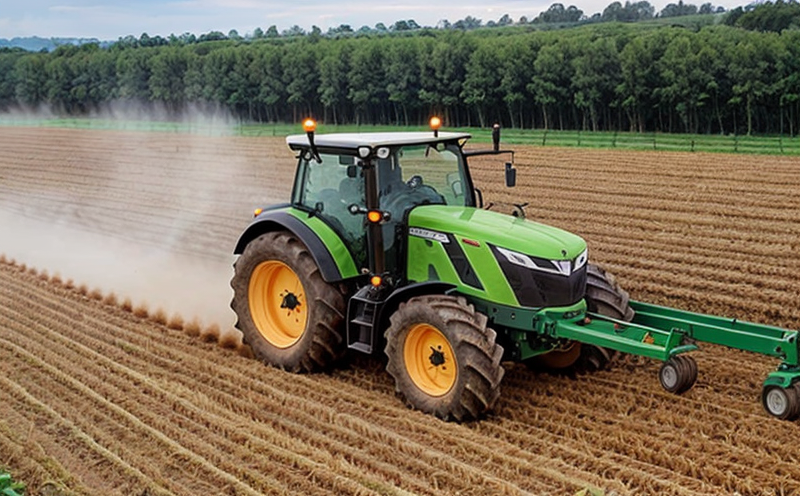The Importance of Certified Agricultural Equipment and Supply Chain Management
Agricultural equipment plays a vital role in modern farming practices, enabling farmers to increase productivity, efficiency, and profitability. However, with the increasing complexity of agricultural systems and the growing demand for food security, the quality and reliability of these machines have become crucial factors in ensuring sustainable agriculture. Certified agricultural equipment is designed to meet specific standards and regulations, which ensure that they are safe, efficient, and environmentally friendly.
The Role of Supply Chain Management
Effective supply chain management is essential for the successful operation of certified agricultural equipment. The supply chain encompasses all the processes involved in bringing products from raw materials to end-users, including procurement, manufacturing, transportation, storage, and delivery. In the context of agricultural equipment, a well-managed supply chain ensures that the right products are delivered to farmers at the right time, minimizing delays and maximizing efficiency.
Key Features of Certified Agricultural Equipment
Some key features of certified agricultural equipment include:
Compliance with regulations: Certified agricultural equipment meets or exceeds all relevant industry standards and regulatory requirements.
Quality certification: These machines undergo rigorous testing and inspection to ensure that they meet the required quality standards.
Performance guarantee: Manufacturers provide a warranty or guarantee for their products, ensuring that farmers can rely on them to perform optimally.
Benefits of Certified Agricultural Equipment
The use of certified agricultural equipment offers numerous benefits to farmers, including:
Increased efficiency: These machines are designed to optimize performance and minimize downtime, reducing the time and resources required for farming operations.
Improved crop yields: By ensuring that all aspects of farming are optimized, farmers can increase their crop yields and reduce waste.
Reduced costs: Certified agricultural equipment is designed to be cost-effective, with energy-efficient designs and reliable components minimizing maintenance and repair costs.
The Benefits of Supply Chain Management
Effective supply chain management offers numerous benefits to farmers, manufacturers, and the broader agricultural industry. Some key advantages include:
Improved efficiency: By streamlining processes and reducing bottlenecks, supply chains can be optimized to meet the needs of end-users.
Increased reliability: Well-managed supply chains ensure that products are delivered on time and in full, minimizing delays and disruptions.
Reduced costs: Effective supply chain management can help reduce costs associated with inventory holding, transportation, and storage.
Supply Chain Management Strategies
Several strategies can be employed to optimize supply chain performance, including:
Just-in-time (JIT) inventory management: This approach involves managing stock levels in real-time to minimize overstocking or understocking.
Total Quality Management (TQM): This strategy emphasizes continuous improvement and employee involvement to ensure that products meet the highest standards of quality.
Key Considerations for Farmers
When selecting certified agricultural equipment, farmers should consider the following factors:
Machine performance: The machines ability to perform optimally in various conditions.
Reliability: The machines likelihood of requiring frequent repairs or maintenance.
Energy efficiency: The machines potential to reduce energy consumption and minimize environmental impact.
Challenges Faced by Farmers
Farmers face numerous challenges when selecting certified agricultural equipment, including:
High upfront costs: Many certified machines are more expensive than their non-certified counterparts.
Limited availability: Certified machines may be in short supply or not easily accessible to farmers.
Complexity of certification processes: The process of certifying equipment can be complex and time-consuming.
Innovations in Agricultural Equipment
Several innovations have emerged in agricultural equipment, including:
Autonomous farming systems: These machines use GPS, sensors, and software to optimize crop growth and reduce manual labor.
Electric tractors: These vehicles offer a cleaner and more efficient alternative to traditional gasoline-powered tractors.
Best Practices for Implementing Supply Chain Management
To ensure the successful implementation of supply chain management strategies, farmers should:
Conduct thorough market research: Understand the needs and preferences of end-users and suppliers.
Develop strong relationships with suppliers: Foster open communication and collaboration with manufacturers and distributors.
Continuously monitor and evaluate performance: Regularly assess the effectiveness of supply chain processes to identify areas for improvement.
QA Section
Q: What is the main difference between certified agricultural equipment and non-certified equipment?
A: Certified agricultural equipment meets or exceeds all relevant industry standards and regulatory requirements, ensuring that it is safe, efficient, and environmentally friendly. Non-certified equipment may not meet these standards and can be less reliable.
Q: How do I ensure that the equipment I purchase is certified?
A: Look for the following:
A certification mark from a recognized third-party organization (e.g., ISO 9001).
Compliance with relevant industry standards (e.g., ASAE S439.2).
Manufacturers warranty or guarantee.
Q: What are some key considerations when selecting certified agricultural equipment?
A: Machine performance, reliability, energy efficiency, and environmental impact should be prioritized.
Q: How can I optimize my supply chain management processes?
A: Implement just-in-time (JIT) inventory management, total quality management (TQM), or other strategies tailored to your business needs.
Q: What are some common challenges faced by farmers when selecting certified agricultural equipment?
A: High upfront costs, limited availability, and complexity of certification processes can make it difficult for farmers to select the right equipment.
Q: Can I customize my supply chain management strategy to suit specific needs?
A: Yes. Many suppliers offer tailored solutions or customized programs that cater to your business requirements.
Q: What are some emerging trends in agricultural equipment?
A: Autonomous farming systems, electric tractors, and precision agriculture technologies are increasingly popular among farmers.
Q: How can I ensure that my supply chain management strategy is effective?
A: Continuously monitor and evaluate performance, regularly assess the effectiveness of processes to identify areas for improvement, and maintain open communication with suppliers.

































